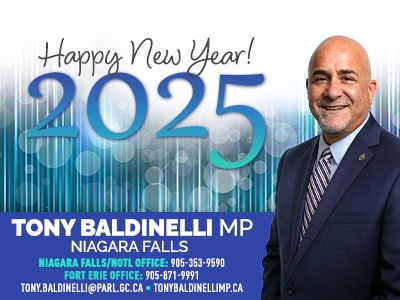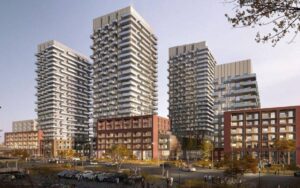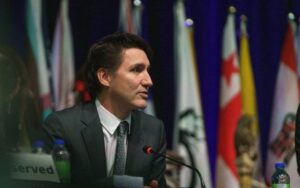
While homeownership remains out of reach for many, the federal and Ontario governments are at least trying to close the gap with targeted policies and incentives. At the local level, however, municipalities need to do better to start combatting, instead of giving into NIMBYism. Photo credit: E+/Troels Graugaard via Getty Images
The dream of owning a home with a white picket fence is just that for many Canadians, a dream. Even owning a condo overlooking the QEW seems like a pipedream these days for those looking to enter the market.
Homeownership provides a person not only a roof over their head but also a point of pride. There is something different about drilling a hole into a wall you own or having to unclog your own toilet. Not to mention, many Canadians use their home as their retirement fund or an opportunity to build collateral.
Last week, Ipsos released a poll that found that 63 per cent of Canadians have given up on ever owning a home, and seven in 10 say that home ownership is now only for the rich. Despite home prices declining 19 per cent from the pandemic highs in February 2022, many feel priced out of the market.
There are several factors affecting the market right now. Supply is low and interest rates are high. Though the Bank of Canada has temporarily paused rate hikes after raising its policy rate to 4.5 per cent, they are considerably higher than what they were during the peak of COVID and this time last year. The high rates and Canada’s strict stress test to be approved for a mortgage are limiting Canadians’ ability to qualify for a loan.
It is worth pointing out that Canada’s high bar for mortgages is one of the reasons why Canadians are at low risk of defaulting on payment. The Canadian Bankers Association reported at the end of last year there were over 6 million residential mortgages in Canada and only 0.15% were in default. The issue of home ownership is being able to afford the down payment.
When looking at the numbers, to purchase the average house in Canada, a person would need a down payment of at least $41,244 plus another $13,000 for legal fees, PST on mortgage insurance and other costs. This would come to around $54,000 dollars. Considering that the average household income for a Canadian family in 2020 was $66,800, it is understandable how saving up nearly 80 per cent of your income would be a bit of a challenge.
The federal government is aware of this challenge, and as any good government would do, is trying to help. Instead of making it easier to build homes or increase supply, the Liberals introduced the First Home Savings Account in Budget 2022. The government renounced it in last month’s budget and launched the account earlier this month.
The First Home Savings Account works similarly to a Registered Retirement Savings Plan and Tax-Free Savings Account. It allows Canadians who are buying their first home to contribute $8,000 annually to the account with a cap of $40,000 that can be withdrawn tax-free for the purchase of a home. The contribution can be deducted from a person’s taxable income.
The new savings account seems to be a godsend – if you have an extra $8,000 laying around, which most Canadians do not. And for those that do, it will only help drive up bidding wars and make housing even more out of reach for the average Canadian.
If the government and Canadians want to get serious about making housing affordable and accessible, more needs to be done to build new houses. Which falls onto the shoulders of municipalities across Canada. There is a lot of Not In My Backyard – “NIMBYism” – going on in Canada.
Everyone agrees housing should be affordable, but not if it means more houses in my neighbourhood, or traffic on my street, or heaven forbid another condo tower in my backyard. It is time for Canadians to act more Canadian and start being good neighbours, and this includes welcoming new houses, streets and condos to our skylines. Local governments need to pull their weight and make it easier to build new houses.
More homes means more building permits and a broader tax base to generate money. Any government should love more money. Not to mention, allowing more Canadians to believe again that owning a home is for them and not just for the rich. We can all work together, be neighbourly and all have a roof over our heads.

Daniel Perry is a Senior Consultant with Hill & Knowlton, Canada’s leading public relations and public affairs firm. He is an experienced campaigner and has provided political advice at all levels of government. Daniel has received a number of awards during his career including being voted Ottawa’s top consultant by his peers.




















